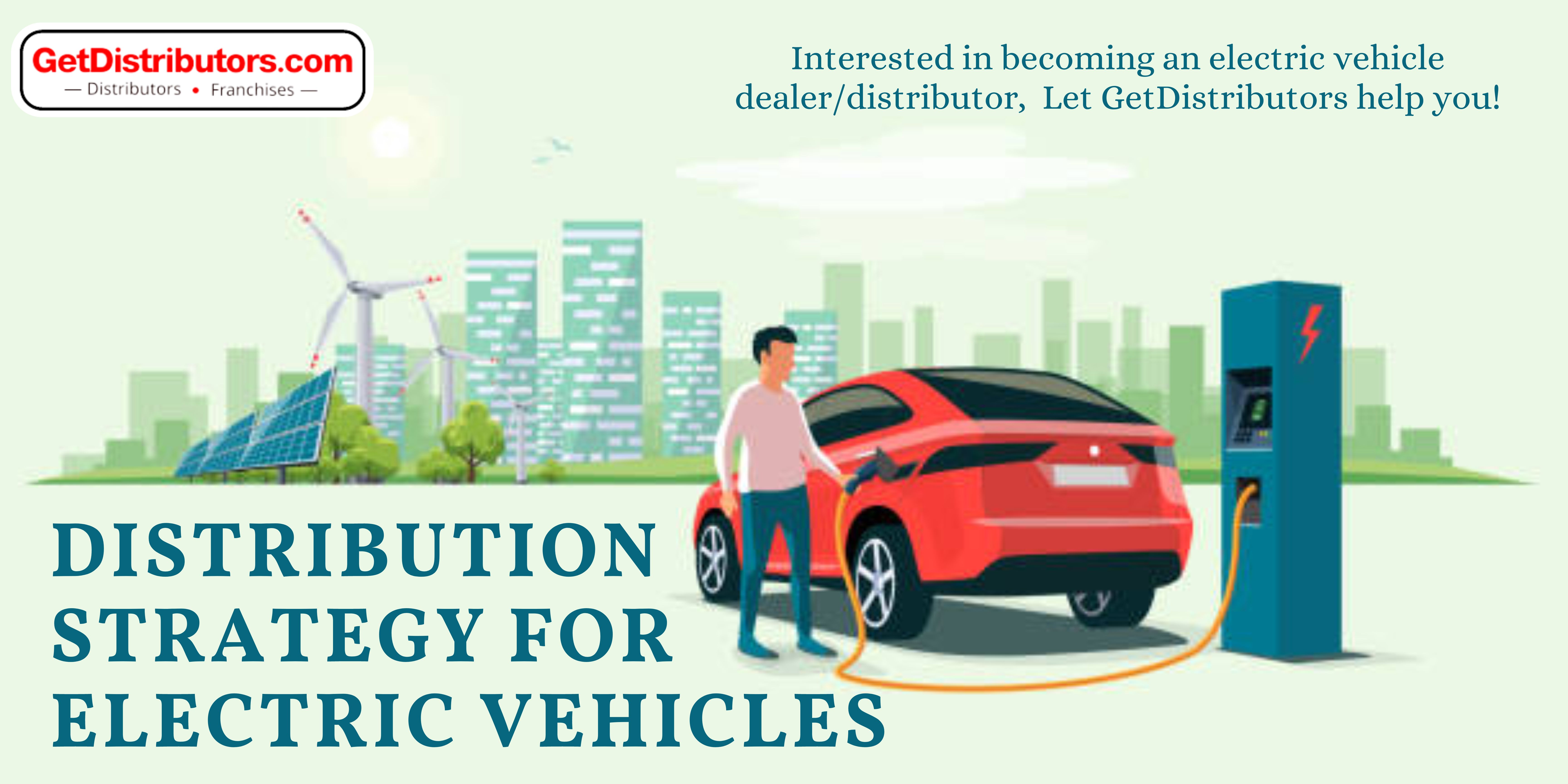Distribution strategy for electric vehicles
The market for electric vehicles (EVs) has been growing rapidly in recent years, driven by a combination of factors including advancements in battery technology, growing consumer demand for more environmentally friendly transportation options, and supportive government policies.
What is electric vehicle?
Electric vehicles (EVs) are a type of vehicle that runs on electricity instead of gasoline or diesel. They use an electric motor and battery pack to store and supply the energy needed to power the vehicle. The energy for the battery pack is typically generated from the charging of the vehicle, which can be done at a charging station or through a regular electrical outlet.
There are several types of EVs, including battery electric vehicles (BEVs), which run solely on electricity, and plug-in hybrid electric vehicles (PHEVs), which combine a traditional internal combustion engine with an electric motor and battery pack. EVs represent an important step towards a more sustainable transportation system and play a crucial role in reducing greenhouse gas emissions and improving air quality.
Why EV market growing in upcoming years?
There are some points, why EV market is growing.
Growing Consumer Demand: Increasing consumer awareness of the benefits of EVs, including lower operating costs, improved performance and range, and reduced environmental impact, has driven growing demand for EVs.
Government Support: Many governments around the world have implemented policies to support the growth of the EV market, including tax incentives for EV purchases, investment in charging infrastructure, and regulations aimed at reducing greenhouse gas emissions from transportation.
Advancements in Battery Technology: Improvements in battery technology have increased the range and performance of EVs, making them a more viable alternative to traditional internal combustion engine vehicles.
Competition among Manufacturers: With the increasing popularity of EVs, major automakers are investing heavily in the development and production of EVs, leading to increased competition and innovation in the market.
Growing Infrastructure: The growth of charging infrastructure, both at home and in public spaces, has made it easier for EV owners to recharge their vehicles, increasing the practicality and convenience of owning an EV.
Is electric vehicles distribution is profitable business?
Whether the distribution of electric vehicles (EVs) is a profitable business can depend on several factors, including the state of the EV market, competition, and the efficiency of the distribution and sales process.At present, the global EV market is growing rapidly, driven by increasing consumer demand, advancements in technology, and supportive government policies. This growth is expected to continue in the coming years, providing a potentially profitable opportunity for companies involved in the distribution of EVs.
Overall, the distribution of EVs can be a profitable business, particularly for companies that are well-positioned in the market and have a competitive advantage in terms of cost structure, marketing, and customer service. However, like any business, the level of profitability will depend on a variety of factors and can vary over time.
Strategy for electric vehicles Distribution
The distribution strategy for electric vehicles (EVs) is a crucial aspect of the EV market, as it determines how EVs are manufactured, transported, and sold to customers. There are several key components to consider when developing a distribution strategy for EVs:
Manufacturing and Supply Chain: The manufacturing and supply chain for electric vehicles (EVs) can have a significant impact on the success and profitability of the EV market. A well-functioning and efficient manufacturing and supply chain is essential for ensuring the timely production and delivery of high-quality EVs at competitive prices.The supply chain for EVs involves the procurement of raw materials, components, and finished goods, as well as the logistics required to transport these items from suppliers to manufacturers, and then from manufacturers to dealers and consumers.
Transportation and Logistics: Transportation and logistics play a crucial role in the success of the electric vehicle (EV) market. The efficient and effective transportation of EVs and related components from manufacturers to dealers and consumers is essential for ensuring the timely delivery of high-quality vehicles. In addition to the transportation of complete vehicles, the logistics of transporting components and raw materials for the production of EVs is also important.
Dealer and Retail Network: The dealer and retail network is a critical component of the electric vehicle (EV) market, as it is responsible for the distribution and sale of EVs to consumers. A well-functioning dealer and retail network can help to ensure that consumers have access to a wide range of high-quality EVs and related products and services, and can also play a key role in promoting and educating consumers about the benefits of EVs. A well-functioning dealer and retail network can also help to build brand awareness and customer loyalty, which can be critical to the long-term success of the EV market.
Marketing and Sales: Effective marketing and sales strategies can help to build consumer awareness and interest in EVs, and drive consumer adoption of these vehicles. Marketing strategies for EVs typically focus on promoting the benefits of these vehicles, such as their lower operating costs, improved performance and range, and reduced environmental impact. Marketing campaigns can also aim to dispel common misconceptions about EVs, such as their limited range and the lack of charging infrastructure.
Customer Service and Support: In the EV market, customer service and support typically involve providing after-sales support, such as warranty coverage, maintenance and repair services, and customer support. Providing these services can help to ensure that customers have a positive experience with their EVs and can also help to address any issues or concerns they may have.
It is important for companies to consider each of these components when developing their distribution strategy, as they all play a role in the success of the EV market. For example, a strong network of dealerships and retail outlets can help increase the visibility of EVs and make them more accessible to customers, while effective marketing and sales strategies can drive demand for EVs.






